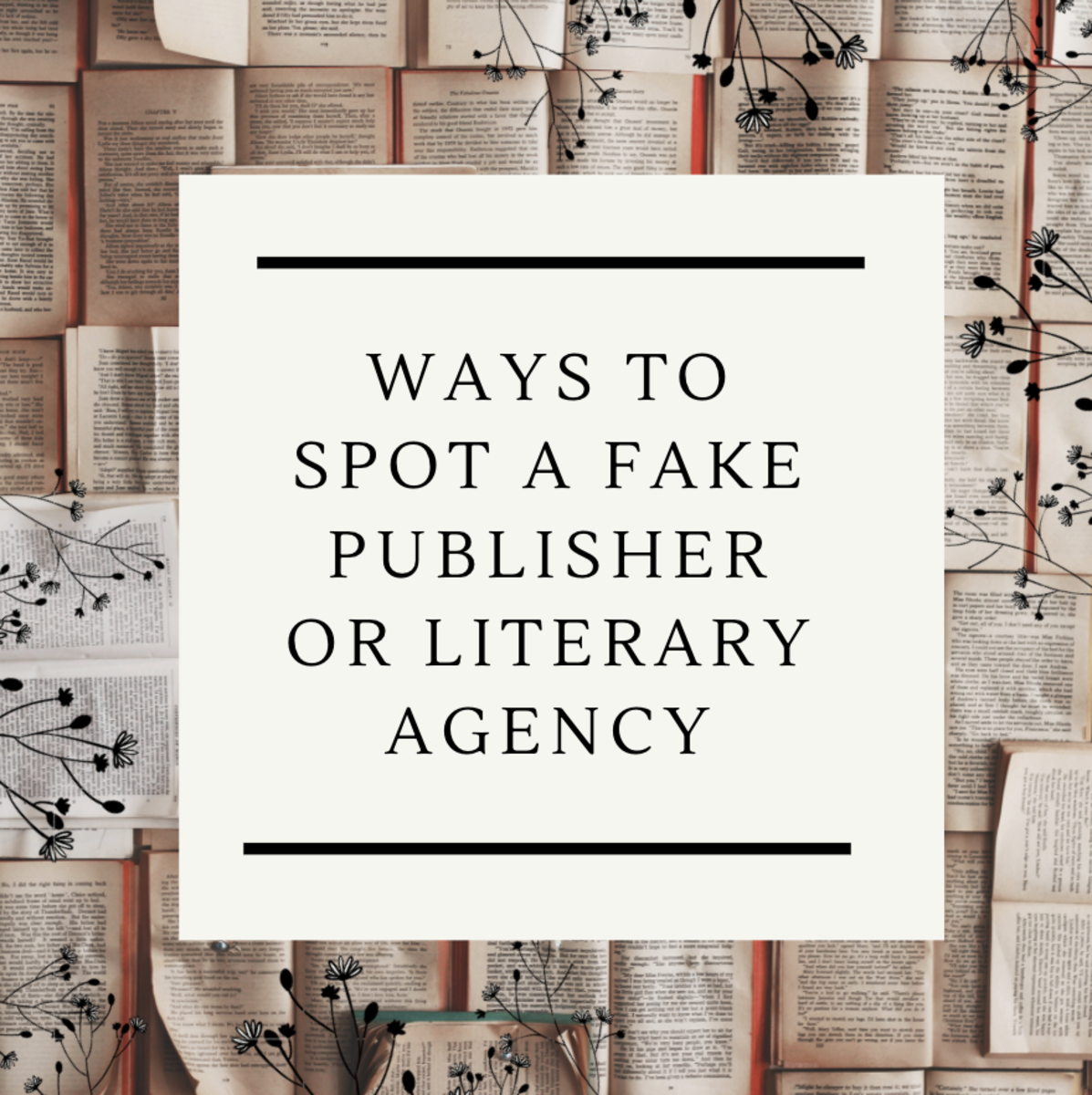- HubPages»
- Books, Literature, and Writing»
- How to Write»
- How to Get Published
Vanity Publishing Explained
Introduction
There is little financial risk as the author pays for the cost of everything, namely, the publisher's profit and overheads, all layout, printing, and promotion costs. When you have paid a printing company to print copies of your book then it becomes the author's property. However, with vanity publishing,, the books remain the property of the publisher until you buy them, even though you have paid for the layout service. Another disadvantage is that the publisher offers no editing, warehousing or distribution of your book and promotion essentially becomes a DIY initiative.

How to recognize a vanity press
Vanity press companies often advertise in writing magazines and will usually deny their core function. Common phrases included, "Manuscripts Wanted" or "Authors Wanted" as well as "Call for Authors". Remember traditional publishers do not advertise for books and writers though.
Vanity publishers claim to be pedantic about choosing authors, but they will accept any manuscript as long as the author pays the upfront fee. A vanity publishing contract can be quite vague as well as it usually does not itemize how much of the fee is for printing or layout, or how much is for the promotional service. Authors may even pay anywhere between $1000 to $3000 depending on size and length for this "privileged" service.
Typical hidden charges might include a set up fee or deposit, although these companies usually deny that you are paying for the actual publishing process. They may even promise to refund this fee but will always provide reasons why not to follow through on the refund.
The contract may also specify the purchase of a large quantity of books, possibly hundreds or even thousands, or the company may insist that you sell a prescribed number of books before the project is published. Furthermore, you may have to pay a large sum for editing, although the result would be a sub-standard, rather than professional job.
You could also end up paying for an unanticipated publicity campaign which could possibly generate a mediocre of amount of sales that does not directly result in a price reduction. if a vanity publisher offer a "marketing" or "promotion" service it is merely a listing on its website on in its e-catalogue usually resulting in fewer than 100 copies sold as spending time and money to promote or market the book would only cut into their profits.
Once the contract is signed the exclusive license is transferred to the publisher to exploit your work. Many misleading terminology will be used describing themselves as joint venture, cooperative, subsidy presses, or use phrases like "shared responsibility" and even "self-publishing".
Some may even pass themselves off as conventional or small press publishers as a subsidy, joint venture, or cooperative firm which is similar to a vanity publisher.
Unethical operations and overcharging is one thing, but will will not even live up to the contract: they won"t deliver the finished books, they will fail to pay royalties, they will make false promises and may even produce of such low quality that you'll be too embarassed to continue further.
Benefits of vanity publishing
A vanity publisher may be a beneficial option though as Deepak Chopra had his first book published by a vanity press. Traditional publishers constant reject a number of feasible manuscripts for many reasons, some of them financial, so vanity publishing does offer an alternative. It certainly provides the authors with a physical product to promote which becomes invaluable to the novice author.
Steps to follow when selecting a vanity publisher
The first point of investigation is to endure that the company will be in existence next week before spending your money. Also confirm the quality of the finished product by requesting to view the publisher's catalog or by purchasing a couple of titles already published. Consider contacting some previous clients for a reference to confirm if they are reliable.
Remember, literary agents qualified editors don't work with vanity publishers so these referrals are highly questionable.
Here are a few other warning signs:
- Promises of mega-profits
- Promises not backed up in the contract
- Vagueness about what it will cost to publishe
- Offers to split costs
- Outlandish praise
- Profit or sales guarantees
- Promises that your book will get into the bookstores
- Any kind of pressure
- Refusal to answer legitimate questions
However, Vantage press and Dorrance Publishing are well established vanity publishers which may be considered when initiating this type of campaign.
© 2018 Brendon Thomas








